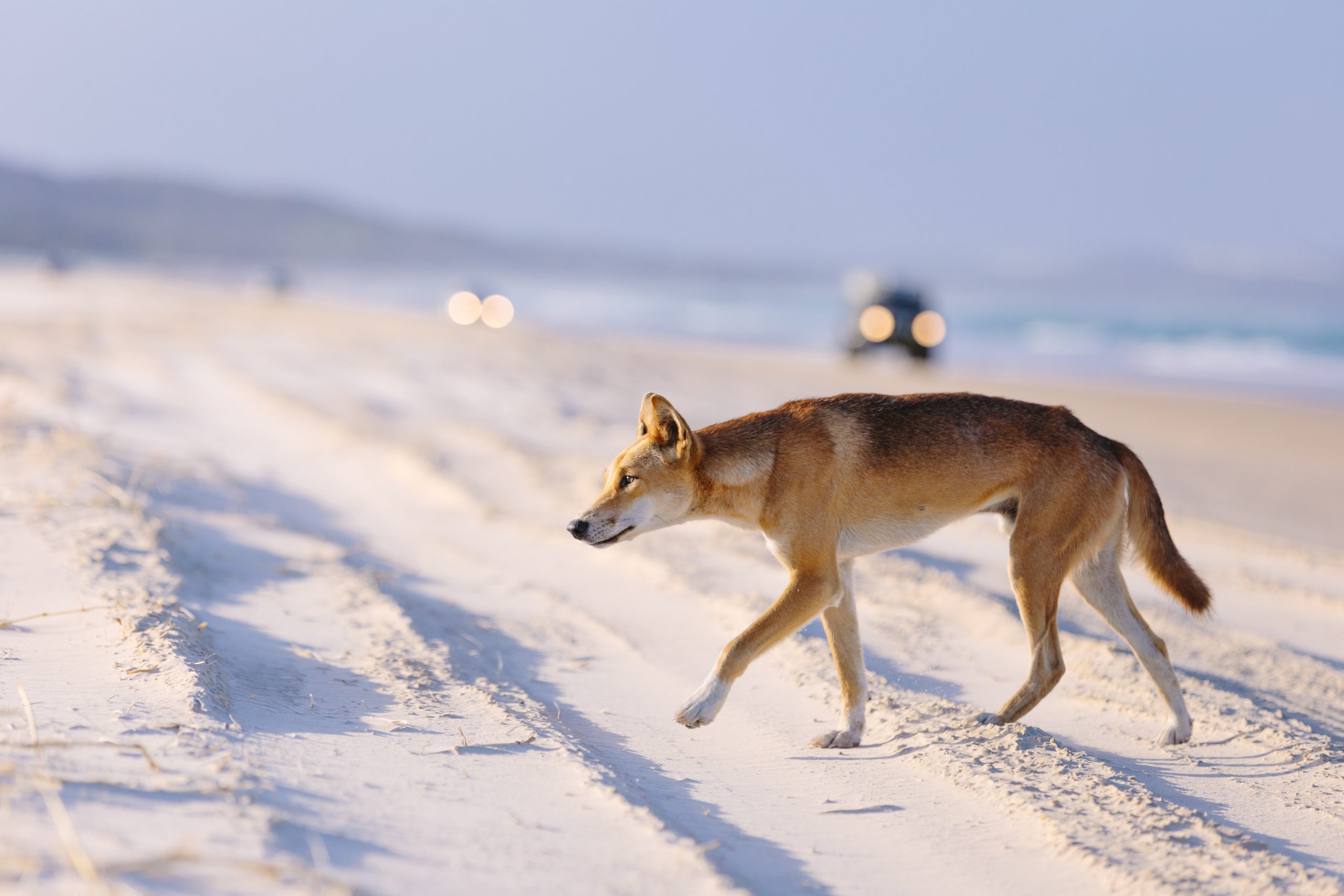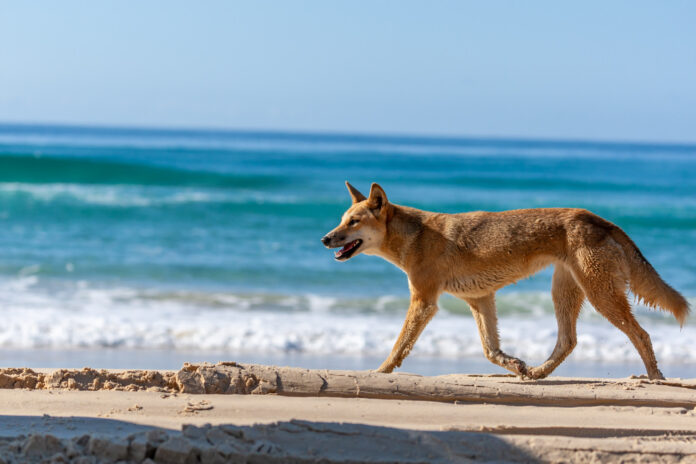A man has been bitten by a dingo while fishing in shallow waters, prompting renewed warnings from rangers to stay alert.
The man was bitten while fishing alone in knee-deep water near Eurong at K’gari on Friday about 11.30am.
He was approached from behind by the dingo, which bit him on the back of the leg, resulting in two puncture wounds and a small superficial laceration that required basic first aid treatment.
The man told rangers that the dingo was almost fully submerged in the water at the time of the incident.
He was wearing a fishing bag containing a fish, and rangers believe the dingo may have been attracted by the smell.
Want more free local news? Follow Sunshine Coast News on Facebook, LinkedIn and Instagram, and sign up for our FREE daily news email.
After being bitten, the man used his fishing rod to make contact with the dingo.
It comes after a woman was bitten on the hands last month, and after it was revealed that there were almost 30-high risk incidents involving dingoes in about three months.
The Department of the Environment, Tourism, Science and Innovation (DETSI) has also received recent reports that dingoes have been loitering around fishers on the island in hope of getting a free feed.
Dingoes are known to steal fish and bait from anywhere they can scavenge, including vehicles, berley bags, shallow waters and straight off a fisher’s line.

DETSI issued a media release urging fishers to be cautious.
“To fish responsibly, it’s important to stay close to the water’s edge when reeling in a fish and avoid dragging your catch across the sand,” the department stated.
“When removing bait from fishing hooks, it is recommended that a protective cover is placed on the hook, and it is stored out of reach of dingoes.”
Ranger Dan Novak reminded visitors to the island, including fishers, to be alert for dingoes.
“Dingoes are opportunistic predators and will strike when they see a chance to do so,” he said.
“To avoid a dingo incident, it’s always a good idea to have a mate stand guard, preferably holding a dingo stick.
“It is an offence to hang bait or berley bags on the outside of vehicles, in trees, or have these lying around.
“We have also seen dingoes grabbing by-catch or fish that are undersized as they’re being released.
“To reduce the chance of a negative dingo interaction we remind visitors to be dingo safe at all times.”
Tips include: always stay close (within arm’s reach) of children and young teenagers; always walk in groups and carry a stick; camp in fenced areas where possible; do not run – running or jogging can trigger a negative dingo interaction; never feed dingoes; lock up food stores and iceboxes (even on a boat); never store food or food containers in tents; and secure all rubbish, fish and bait.





